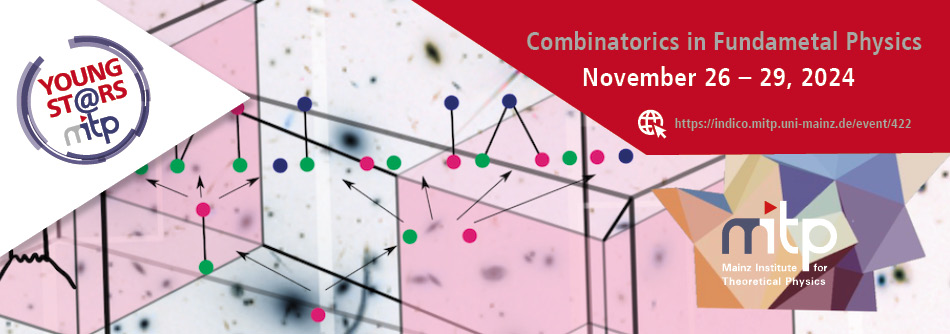The workshop focuses on the intersection of combinatorics and fundamental physics, where mathematical techniques have powerful applications. Key areas of interest include the enumeration of Feynman diagrams, discrete structures in approaches to Quantum Gravity, and the broader use of combinatorial methods in theoretical physics.
Day 1: Random Geometry for Quantum Gravity
Random geometry is a powerful mathematical framework for studying quantum gravity by modeling it as a statistical physics system, where each Boltzmann configuration corresponds to a spacetime geometry selected from an ensemble with a well-defined probability measure. When considering quantum gravity from a lattice perspective, where spacetime is discrete, the challenge of defining a suitable probability measure becomes a combinatorial problem. In two dimensions, this discrete approach has been extensively developed through random maps and matrix models, which, in their continuum limit, correspond to Liouville quantum gravity. Expanding this framework to higher dimensions presents an exciting and largely unexplored frontier. The ultimate goal is to extend these principles to four-dimensional spacetime, aiming to capture the dynamic geometry of our universe and provide a robust foundation for understanding quantum gravity across all scales. Our emphasis during the workshop will be on the key challenges that combinatorics can be used to address in Quantum Gravity using maps and tensor models.
Day 2: Causal Set Theory
Causal Set Theory is an approach to Quantum Gravity in which spacetime is fundamentally discrete and takes the form of a locally finite partial order, or causal set. The twin questions leading much of the research in this field are: How does the continuum physics of General Relativity arise from an underlying discreteness? And what is the quantum nature of a discrete and dynamical spacetime? During the workshop, we will focus on how the language of combinatorics has already played a key role in addressing these questions (e.g. in counting problems associated with the discrete Einstein-Hilbert action) and what new combinatorial tools can be exploited to further this research (e.g. in the study of random graphs as models for the quantum dynamics for spacetime).
Day 3: Combinatorics in Perturbative QFT
Since its inception in the 1940s, perturbative quantum field theory has been one of the most successful theoretical models for fundamental physics. A unique feature of the theory is the central role that combinatorics plays: from generating Feynman graphs of scalar models to combinatorial maps and higher graph-like objects of sophisticated frameworks such as matrix-/tensor- and group field theories to renormalization Hopf algebras, and the theory of resurgence and asymptotic power series, to name but a few. The focus of this workshop will be on matrix-/tensor-/group-field theories and graph complexes. In particular, what are the combinatorial objects that emerge from these theories and their properties? And what do they say about the physical models? This workshop will highlight the successes of combinatorial techniques in perturbative quantum field theory as well as future outlooks for these methods.

